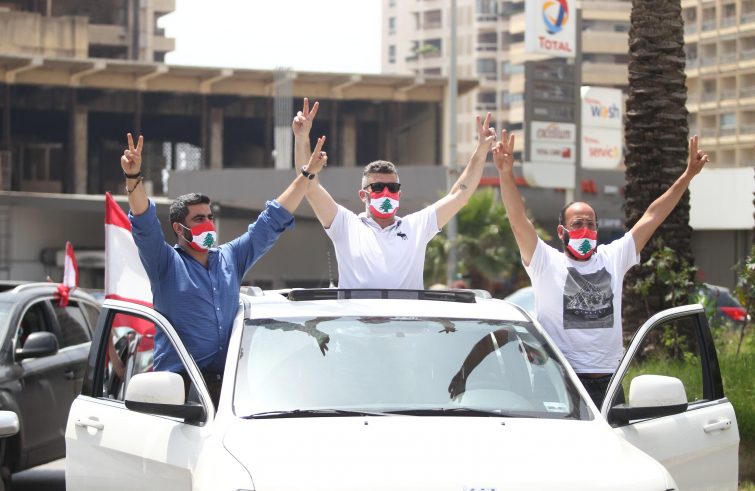
For the past few days – for more than a week small groups of protesters had been targeting banks and other sensitive targets – the thaoura, the Lebanese Revolution, erupted on October 17, regained momentum as people took to the streets of Beirut and Tripoli.
The anger is such that mounting violence is feared,
especially after Fawaz Samman, a young protestor in Tripoli, died from injuries sustained in clashes with the police. “He wasn’t a terrorist. He was a hungry man,” cried out the crowds in Beirut; “We have nothing more to lose,” “everything is expensive, except the blood of the people.”
However, a lot has happened in Lebanon since then: not only the coronavirus, which in fact has never reached high alert levels (700 to 800 cases, with approximately twenty deaths). While the crisis, economic and political alike, is at its highest alert level.
At the beginning of March Lebanon announced its inability to repay a $1,200 million debt to the European Union – thereby announcing sovereign default – while the crisis has now hit the banking system. Lebanese currency plunged to almost 4,000 lira to $1 (the fixed exchange rate, on October 17, was and still is 1,500), while the government has not yet mentioned anything about the much trumpeted economic reform, caught up in feuds of party politics, thereby stirring anger in Lebanese people who are left with no certainty.
The economic situation is extremely severe:
there is a sharp rise in unemployment (no reliable figures are available) and it is feared that currency depreciation might burst the bubble of civil servants.
So far, public administration has been sustaining a quarter of the Lebanese population: it is feared that unprecedented popular uprisings could break out when the military, garbage collectors and nurses will no longer be able to make ends meet, with wages having lost 70% of their value.
Even in the rich district of Beirut, the Christian district of Achrafieh, people now are not ashamed to go and ask for food from soup kitchens.
The controversies between the Diab government and the Bank of Lebanon are extremely worrying. The Prime Minister openly said he held the governor of the Central Bank, Riad Salameh responsible for the currency crash, and initiated an investigation against him. Admittedly, the management of the BDL has long been opaque and contradictory, but the controversy turned out to be dangerous politically, as Diab took a clear stand in favour of the forces that support his government (the Shiites of Hezbollah and the “Christian” party of President Aoun and his son-in-law Bassil), against the Sunni and Christian opposition (led by former Prime Minister Hariri, also a Sunni), losing all residual credibility in championing the fight on corruption and bad governance.
There is now fear that the revolts, as well as politics, could be “denominationally” manipulated.









